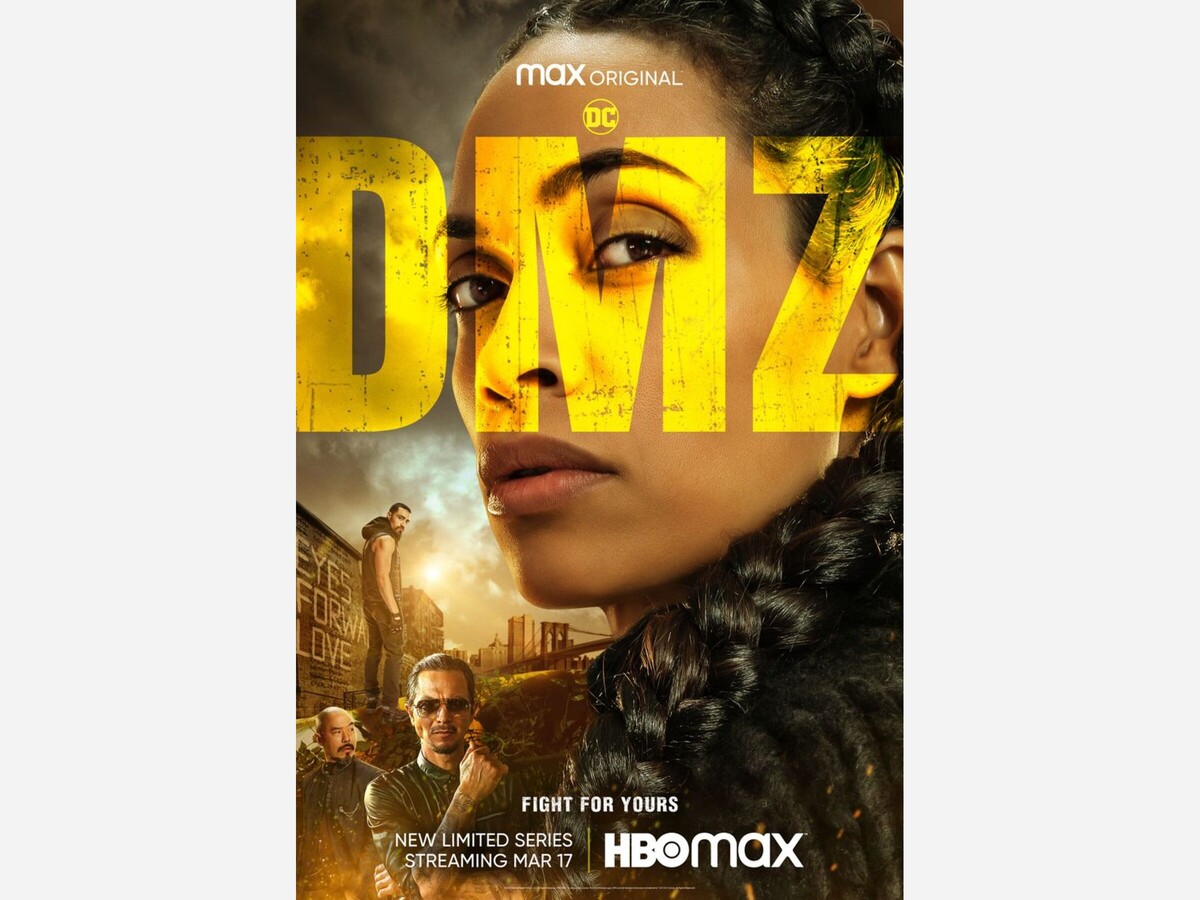Image

After Y: The Last Man ended at DC’s Vertigo imprint, the void for comics set in a post-apocalyptic America was quickly filled by DMZ. The comic had an interesting premise; a second Civil War has broken out between the United States and the newly formed “Free States of America” which came to a head and a border was formed around Manhattan. The comic was an intricate look at United States foreign policy while also shining a black mirror on the jingoistic and tribal nature of politics in the mid-2000s (something similarly done in Y: The Last Man). Unfortunately DMZ on HBOMax does away with the nuance and replaces it with a story that falls flat in a world that is disorienting with stakes that never feel real.
The best part of this four-episode event series comes from the performances of Benjamin Bratt and Rosario Dawson. Both actors have proven themselves to be forces in the field in the past and use the show as a vehicle to show off the full range of their abilities. It makes the show somewhat bearable to watch over the course of its runtime, however it is not nearly enough to offset the negatives that befall the show from almost the start.
The first real issue is that the first episode does not feel like it is a quarter of an event series like it should. Narratively, an event series or miniseries is a type of long format storytelling that should take the general episodic nature of television or even a novel and work a longer story into that framework. The thing is, an event series does not need to be sold as a recurring story in the way a drama series that will recur for more than one season needs to so the first episode should not be a pilot in the way that other episodic television is handled. The first episode of DMZ, keeping in mind it is one of four, feels too much like a pilot intended to try and get the viewer to come back and watch week after week. What this ends up causing is a general feeling that the episode is a waste of time that is misguided in what it is intending to do.
The second issue that plagues the show is that the general idea around how the world works is never fleshed out to the degree that it needs to for the show’s stakes to feel real. The idea of a civil war that tears at the country feels like a good idea, however the fact of the matter is that the semantics of why Manhattan was left as a demilitarized zone and was abandoned is not explained to a degree that is satisfactory to the story. On top of this, the show does not explain why the zone needs to assert itself as an independent state when neither the Free States nor the United States are making a claim to the land. Unlike the demilitarized zone that currently exists say between North and South Korea, this one only is Manhattan Island, so it is not a demarcation line. Even if the show contends that the United States at this point is only Brooklyn, Queens, and Long Island and everything else is the Free States, there still are land passages and plenty of other invasion points so making a line in the sand at Manhattan is just kind of silly.
That all may seem nitpicky, however world building in dystopian fiction is just as important as it is in fantasy and other forms of science fiction. The world needs to be believable and operate in ways that are consistent with an internal logic so that suspension of disbelief about how it differs from reality can happen. When a show or movie fails at this, it makes it easy to miss the point of the show completely because the semantics of how things work get confusing. The easiest way to surmise this is when a lead character talks about going into both the Free States and the United States to look for someone, when both countries are designed to have intensely militaristic borders. Couple this with the use of subway tunnels, subway tunnels that are running trains even at this moment, are the “secret” ways into and out of the demilitarized zone, it makes it hard to feel like the people in charge in the world are taking it seriously at all. Couple that with laughably bad gunplay where in one episode a single character is both unarmed and shot at by a sniper she does not know exists and also shot at while running in a straight line by trained soldiers with automatic weapons and somehow doesn’t even get grazed and the result is a show that does not have real stakes.
DMZ is not great and is not worth the four-hour runtime, which is a shame. In the modern era, even more so than the world that the original comic was birthed from, DMZ could be topical and talk about the problems that Americans face and also address the tribalization of politics, but that is just used as a type of backdrop here that does not feel important in the slightest. It is shallow in every sense of the word. Hopefully the next live action adaptation of a Vertigo comic (Sandman on Netflix) lives up to the comic in a way that DMZ did not.
Final Rating: 5/10